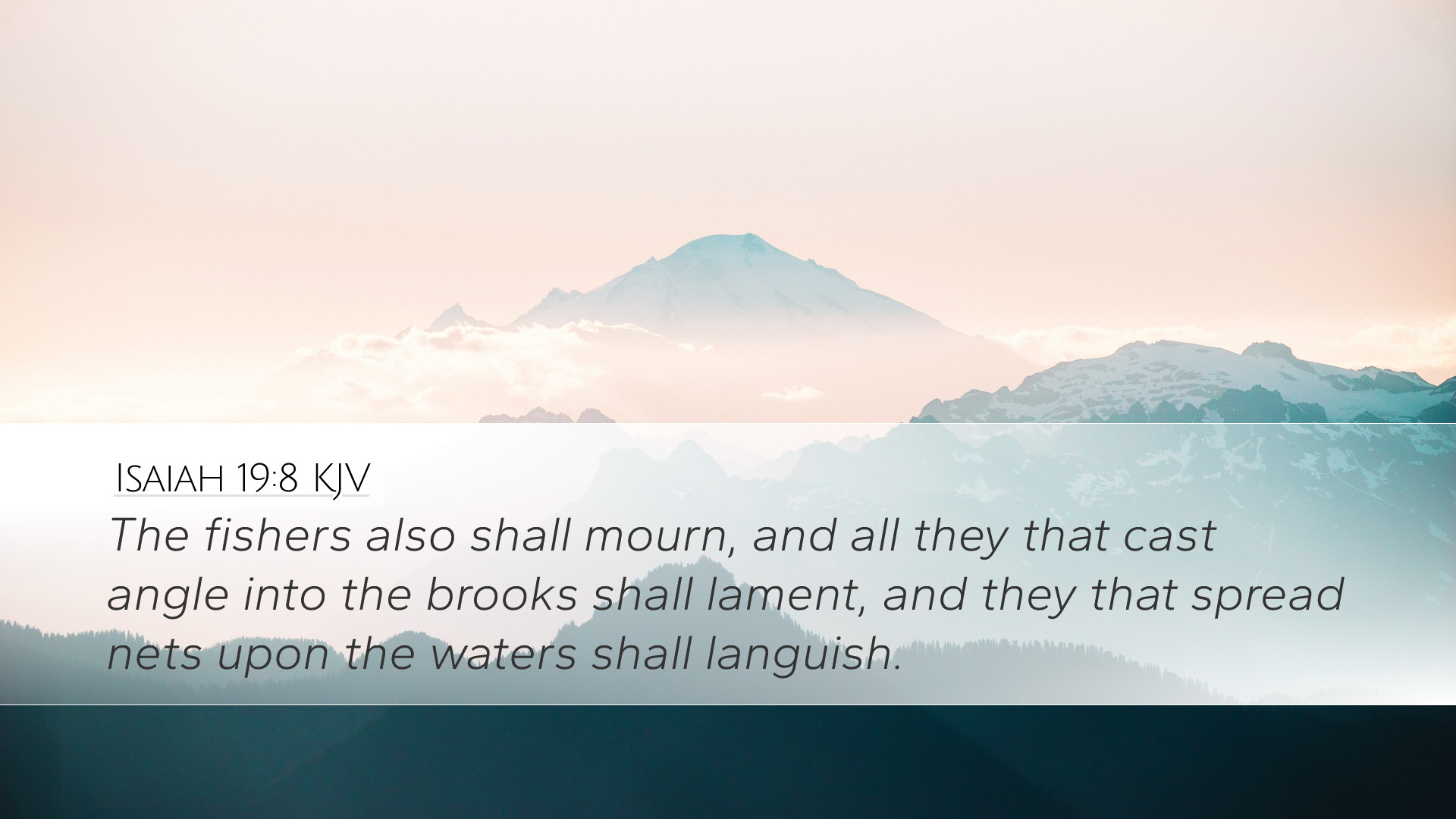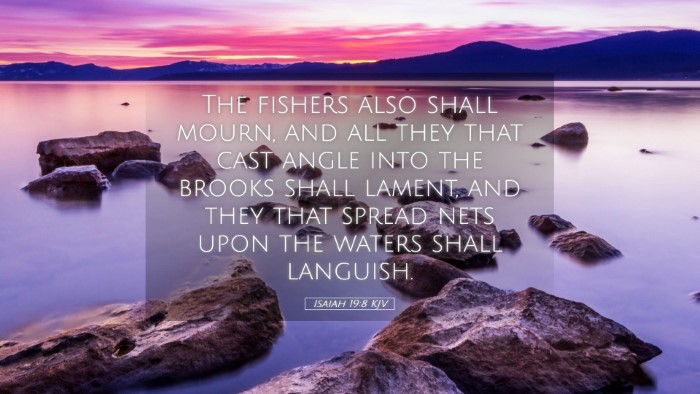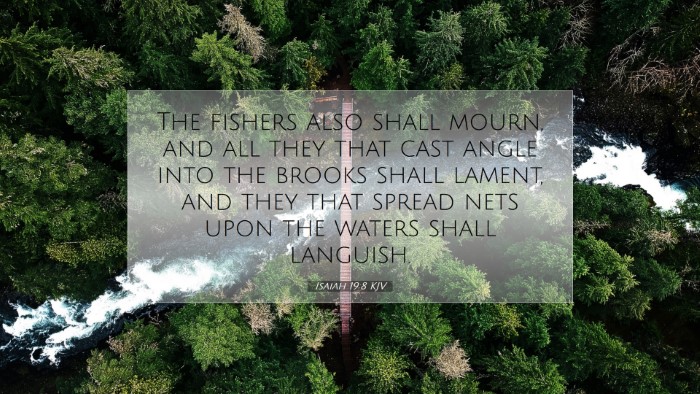Commentary on Isaiah 19:8
Isaiah 19:8 states: "The fishers also shall mourn, and all they that cast angle into the brooks shall lament, and they that spread nets upon the waters shall languish."
Contextual Overview
This verse occurs within a prophecy concerning Egypt's judgment and the subsequent turmoil that will affect the nation. Isaiah speaks of impending calamity that will result in great sorrow and lamentation, particularly among those whose livelihoods depend on fishing and the natural resources of the rivers and waters.
Interpretational Insights
-
Matthew Henry's Perspective:
Matthew Henry points out that the mention of "fishers" is symbolic of a wider economic despair. He indicates that the fishers, who rely on both the waters and the fertility of the land, will experience a profound sorrow due to the impending desolation. This reflects the idea that when a nation turns away from God, not just its leaders, but all layers of society suffer.
-
Albert Barnes' Commentary:
Albert Barnes highlights the literal and metaphorical dimensions of the text. He notes that the fishers’ lament reflects the broader chaos and upheaval in Egypt, where economic activities are disrupted. He emphasizes that the ruin of the fishing industry serves as a microcosm of the complete societal collapse that will occur.
-
Adam Clarke's Analysis:
Adam Clarke provides a keen observation that the lamentation of the fishers signifies a deprivation of joy and sustenance. He elaborates that the fishing practices described—the casting of angles and spreading of nets—imply a deep-rooted connection between the people and their environment. This relationship's breakdown indicates a divine judgment leading to existential distress.
The Symbolism of Fishers
The imagery of fishers in Isaiah 19:8 encompasses both literal and symbolic meanings. Fishers, representing the common folk, are portrayed as victims of divine wrath, which extends beyond particular individuals to all inhabitants of a nation. The lamentation of these workers suggests that divine judgment affects every level of society, particularly those whose professions are inherently tied to God's creation.
Theological Implications
Theologically, this passage invites reflection on God's sovereignty and justice. As noted by the various commentators, the consequences of turning from God's ways result in pervasive judgment. Isaiah’s proclamation illustrates a poignant truth: societal sin leads to collective suffering.
-
Covenantal Context:
God's covenant with His people, emphasizing faithfulness and obedience, is echoed in the calamity faced by Egypt. The foreboding judgment serve as a reminder of the covenantal relationship that governs interactions between God and nations.
-
Human Dependency:
This lamentation reveals humanity's dependency on God for sustenance and joy. The loss of the fishers' livelihoods is a direct outcome of the divine removal of blessing, which serves as a stark reminder of the fragile state of human existence.
Applications for Today
The enduring relevance of Isaiah 19:8 to contemporary readers cannot be overlooked. For pastors, theologians, and scholars, this passage serves as a clarion call to examine the state of nations and communities today:
-
Economic and Environmental Responsibility:
Just like ancient Egypt, the modern world witnesses the consequences of ecological neglect and economic injustice. This verse prompts a discussion on stewardship of the earth’s resources and the moral implications of exploiting the environment.
-
Community Lamentations:
Communities today lament over brokenness and suffering due to various issues such as inequality, loss of livelihoods, and moral decay. This passage serves as a reminder that such lamentations should lead towards repentance and a return to righteousness.
-
Encouraging Hope Amidst Despair:
For those facing loss and mourning, Isaiah 19:8 reminds believers that God’s judgment is coupled with the hope of restoration, making the case for pointing communities towards healing and reconciliation with God.
Conclusion
Isaiah 19:8 stands as a vital reminder of the consequences of societal sin and the far-reaching impacts of divine judgment. Through insights provided by Matthew Henry, Albert Barnes, and Adam Clarke, we gain a multifaceted understanding of this verse, illuminating its implications for both ancient Egypt and the world today. As scholars and leaders within the Christian community, it is imperative to heed the lessons of this passage, embracing the call to pursue righteousness, environmental stewardship, and social justice in our contexts, nourishing both spiritual and earthly lives.


